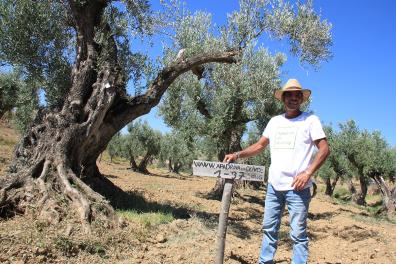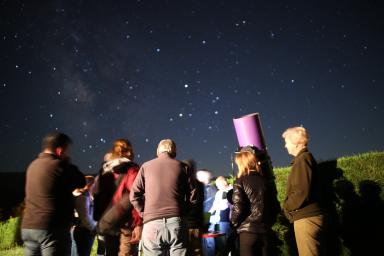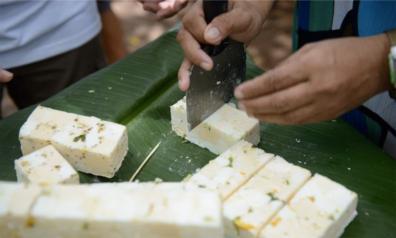FiturNext presents the best practices for tourism to contribute to local economic development
From the FITURNEXT Observatory, sponsored by Bankia, we have selected the three winning initiatives of the FITURNEXT 2020 challenge: “How tourism can contribute to local economic development. For this, 250 practices have been analyzed worldwide, assessing their level of impact and replicability.
On January 22nd, within the Fitur 2020 framework, we will deliver the awards after having evaluated the innovative projects that contribute to local economic development which stem from tourism.
Beyond having positive effects for communities, local economic development generates numerous benefits for destinations and businesses in the tourism sector. It allows to open tourism in areas where it is non-existent or incipient, develop local enterprises or inclusive and decent jobs.
Award-winning replicable initiatives - FiturNext 2020 Challenge
Tourism faces systemic challenges which are spread out from destination to destination. From the FITURNEXT Observatory, we believe that replicating or adopting what works is the best way to accelerate positive impact. To carry out the process of selection and analysis of good practices, we developed a methodological tool that exposes the main characteristics that define the replicability potential of an initiative and, therefore, its ease of adoption by the sector. This potential is measured through the replicability barometer, which studies two dimensions: the degree of viability of the initiative, that is, its degree of development, documentation and resources; and on the other hand, its degree of maturity, dependencies, transfer and ecosystem in which the initiative is developed.
Applying the replicability barometer, we obtained the 12 initiatives with the highest adoption potential. Subsequently, our Advisory Committee, made up of 7 experts with great experience in the field of tourism and innovation, voted for the 3 winning initiatives: Apadrina un Olivo, Starlight Foundation and Soap for Hope by Diversey.

Apadrina un olivo
Apadrina un Olivo is an initiative that recovers, preserves and gives value to the centennial olive grove abandoned in Oliete (Teruel, Spain) while generating a sustainable economy with social inclusion in the local area. Its promoters have created a sponsorship model in which godparents can baptize their olive tree, follow its condition and care, receive two liters of oil from this olive tree every year and visit it. The initiative already has 4,000 godparents, has recovered 8,300 olive trees and has employed 10% of the population in the area. Following this initiative, godparents and curious people have created a flow of visitors in the area and led to the development of accommodation, catering and leisure.

Starlight Foundation
Fundación Starlight is an entity that offers a certification system so that destinations, lodgings and natural reserves can develop astrotourism in rural territories, with little light pollution and that can take advantage of tourist activity to alleviate depopulation. On average, the growth experienced by the destination is usually between 100% and 400%.

Soap for Hope
Soap for Hope is a project that uses soap remnants from hotels around the world so that vulnerable women can sell it. In addition, thousands of children who do not have access to basic hygiene conditions also benefit from this donation programme. Since the beginning of the project, more than 4,000 women have benefited from manufacturing, distributing and selling the new soaps.
Summary of the 9 finalist initiatives
The following projects were also finalists:
- Vías Verdes, which seeks to promote sustainable rural development through tourism and the use of abandoned railway infrastructure;
- Local Alike, which trains and passes on knowledge to residents in tourism management so that they can co-create tours and experiences for visitors;
- Pichaeats, which works with Malaysian refugee families to offer buffet, catering and delivery services, and develops an open cooking programme where guests eat at chefs' homes;
- Fundación Yetapá, which helps communities to value their natural and cultural heritage to build a tourist destination seeking to show a model of local development where tourism is the tool that boosts the economy;
- Taste of Fethiye, which allows producers to provide food to hotels in their area by bridging relations among both actors;
- NotOnMap, which creates "model locations", that is, new tourist destinations in rural areas of the country where the lifestyle and traditions of the local population are valued;
- Totonal, which provides a supply chain with rural cooperatives and small businesses in the tourism sector in Mexico, matching supply and demand;
- Plan Wallata, which develops the region of Ollantaytambo, Peru, and the capabilities of its inhabitants to achieve the goal that, in 2021, the region becomes a competitive destination and a sustainable model for touristic activities; and, lastly,
- Favela Tour, which offers guided tours of the largest favelas in Rio de Janeiro, through which it facilitates a new understanding of the different aspects of Brazilian society.
During the celebration of Fitur, the FiturNext Observatory will offer an extensive programme of talks and dialogues with relevant people in the sector; awards will be given to the winning initiatives; the presentation of the report How can tourism contribute to local economic development?; and the FiturNext 2021 challenge will be announced.
What can you do to join the FiturNext community
We invite you to follow the news of FiturNext through our newsletter. In January 2020, you can enjoy our programme at Fitur 2020 on innovation and sustainability in tourism.




